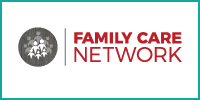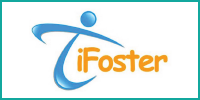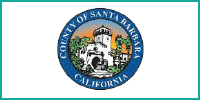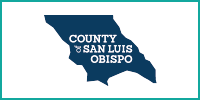Potential Interview Questions
Technically, not every item is a question; some are statements; but all are intended to prompt you for a response.
Better questions are not those that can be answered with a "yes" or "no," but are open-ended  questions that invite thoughtful response. Even if you are asked a question that can be answered with a "yes" or "no," (e.g. "Are you comfortable with the amount of travel this job involves?"), you can certainly add a word of explanation to back up your answer (e.g., "Yes. I actually look forward to the opportunity to travel and to work with the staff members in some of the other offices.)
questions that invite thoughtful response. Even if you are asked a question that can be answered with a "yes" or "no," (e.g. "Are you comfortable with the amount of travel this job involves?"), you can certainly add a word of explanation to back up your answer (e.g., "Yes. I actually look forward to the opportunity to travel and to work with the staff members in some of the other offices.)
Best questions are those that ask you how you behaved in the past, because past behavior is the best predictor of future behavior. These are referred to as behavioral interview questions; read more.
Not every interviewer will ask you every one of these questions. However, if you are prepared to address these questions, you will leave the impression that you were prepared for your job interview, even if additional questions take you by surprise.
• What are your long-range goals and objectives for the next seven to ten years?
• What are your short-range goals and objectives for the next one to three years?
• How do you plan to achieve your career goals?
• What are the most important rewards you expect in your career?
• Why did you choose the career for which you are preparing?
• What are your strengths, weaknesses, and interests?
• How do you think a friend or professor who knows you well would describe you?
• Describe a situation in which you had to work with a difficult person (another student, co-worker, customer, supervisor, etc.). How did you handle the situation? Is there anything you would have done differently in hindsight?
• What motivates you to put forth your greatest effort? Describe a situation in which you did so.
• In what ways have your college experiences prepared you for a career?
• How do you determine or evaluate success?
• In what ways do you think you can make a contribution to our organization?
• Describe a contribution you have made to a project on which you worked.
• What qualities should a successful manager/leader/supervisor/etc. possess?
• Was there an occasion when you disagreed with a supervisor's decision or company policy? Describe how you handled the situation.
• What two or three accomplishments have given you the most satisfaction? Why?
• Describe your most rewarding college experience.
• What interests you about our product or service?
• Why did you select your college or university?
• What led you to choose your major or field of study?
• What college subjects did you like best? Why?
• What college subjects did you like least? Why?
• If you could do so, how would you plan your academic studies differently?
• Do you think your grades are a good indication of your academic achievement?
• What have you learned from participation in extracurricular activities?
• In what kind of work environment are you most comfortable?
• How do you work under pressure?
• Describe a situation in which you worked as part of a team. What role did you take on? What went well and what didn't?
• In what part-time, co-op, or summer jobs have you been most interested? Why?
• How would you describe the ideal job for you following graduation?
• Why did you decide to seek a position with our organization?
• What two or three things would be most important to you in your job?
• What criteria are you using to evaluate the organization for which you hope to work?
• How would you view needing to relocate for the job? Do you have any constraints on relocation?
• Are you comfortable with the amount of travel this job requires?
• Are you willing to spend at least six months as a trainee?
What the interview is looking for:
Interviewer says: Tell me about yourself.
Remember, this is a job interview, not a psychological or personal interview. The interviewer is interested in the information about you that relates to your qualifications for employment, such as education, work experiences and extracurricular activities.
Interviewer says: What do you expect to be doing five years from now?
The interviewer is looking for evidence of career goals and ambitions rather than minutely specific descriptions. The interviewer wants to see your thought process and the criteria that are important to you. The interviewer is not looking for information about your personal life.
Interviewer says: Why should I hire you?
Stress what you have to offer the employer as relates to the position for which you are interviewing, not how nice it would be to work there or what you want from the employer. Remember that you are being compared to other candidates, and in fact more than one candidate might be a very good employee. Deliver to the employer reasons to see that you are a good fit (show you know yourself, know the field/industry, know the organization, and know the position).
Interviewer says: What are your weaknesses?
This question is tricky for everyone. If you've done your research, you know what weaknesses would be unacceptable in the job, and you probably haven't made it to the interview stage if you have those weaknesses.
- Don't be dishonest and don't make up something that you think sounds good. Don't respond with a joke (that's just evading the question).
- Don't discuss topics that are personal in nature (like having a messy kitchen at home).
- Don't be surprised by or unprepared for this question. It may be asked in other ways, such as "What would your greatest challenge be if you were in this job?"
In the best circumstance, the employer is asking this question to discern your self-awareness. We all have strengths and weaknesses.
There are a few strategies you can use to prepare:
1. Identify a weakness that you are working to correct and talk about how you are doing this.
2. Identify a weaknesses that is not relevant to the job.
3. Show how you seek out and work well with others who have strengths in your areas of weakness.
4. Use your knowledge of your personality, showing both sides of the coin (pros and cons) making sure this is a match for the job. For example, if you have an introversion preference, AND the job requires solitary work, you can explain that you are energized by solitary work and have the stamina for it, while you may feel less energy from long periods of time working with customers (and obviously you would not say this if interviewing for a job that required long hours of customer contact). Balance that by explaining that you are always well-prepared for customer contacts, due to your workstyle and personality.
- Advice on this topic from Business Insider: 7 things you should never do... interview. Number 5 addresses the weakness question; advises to avoid cliches.
Interviewer says: What are your ideas about salary?
Research salaries in your field before your interviews so that you know the current salary range for the type of position you are seeking.
Interviewer says: Why do you want to work for our company/organization?
Not having an answer is a good way to get crossed off the candidate list, and is a common pet peeve of interviewers. Research the employer before your interview; attempt to find out about the organization's products, locations, clients, philosophy, goals, previous growth record and growth plans, how they value employees and customers, etc.
Unfortunately it's very common for job-seekers to directly state, "I really want to work for your company/agency/organization/firm," but then to be unable to answer the question "why?" Without the answer to "why?" the initial statement becomes meaningless.




